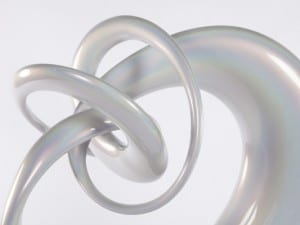Review by Kenn Taylor
A new entry on Liverpool’s cultural calendar, Look11, is a vast photography festival encompassing exhibitions, events and projects taking place over several months. Like the similar but larger Liverpool Biennial, it has taken over many of the city’s arts venues for the duration and has an over-arching theme – ‘photography as a call to action’.
Open Eye Gallery has been promoting photography in Liverpool since it was founded in the 1980s. This will be the last exhibition in the Wood Street space that it has occupied since the early 90s, before it moves to a new, larger home on the waterfront. Appropriately, the exhibition features images chosen from Open Eye’s archive, curated by American photographer, Mitch Epstein, who will have his first UK solo show at their new space.
The shots are very much of their time, nearly all from the 1980s; they feature some of the most influential British photographers of the period, many of whom cut their teeth in Liverpool, including Tom Wood and Martin Parr. The lives of the working-class and the decaying fabric of the industrial north are the inevitable main themes of many of the images, with photographers like John Davies and Parr finding truth and beauty where others would see only ugliness and squalor. It’s a timely show, and you wonder what such photographers would think of Liverpool’s startling regeneration, and the Open Eye’s shiny new home.
Bluecoat has perhaps the most successful exhibition of the festival overall. Taking Containment as their own theme within a theme, the show is varied, but high-quality and coherent. Ben Graville’s In and out of the Old Bailey(2002-09) features ‘papped’ shots taken of prisoners through the mirrored glass of prison vans on their way into the UK’s central criminal courts. The images raise issues of privacy, media intrusion and voyeurism. Beyond this though, their power as portraits is undeniable; the garish colours, lack of focus and the candid poses, some defiant, others cowering, adding to their disconcerting fascination.
In total contrast, David Maisel’s project, Library of Dust (2006), records the corroded copper containers that hold the cremated remains of patients who died whilst in the Oregon State Mental Asylum. Dating from between 1883 and the 1970s, these ashes were never collected by the families of the deceased. The large and vivid images detail the copper decaying in rich greens and whites, only the faded institutional labels revealing their true grim purpose. That these works highlight the containment not only of human remains, but those who society deems as ‘other’, so much so that many were rejected by their own families even in death, is as poignant as it is troubling.
The vast Novas Contemporary Urban Centre is, as usual for festivals like this, filled to the brim with several different exhibitions. Its basement crypt holds the largest exhibition, which appears to have a documentary focus. Robert Polidori’s New Orleans After the Flood (2005-6) is a series of large images of the destruction wrought on domestic environments by Hurricane Katrina. Featuring the bright colours of family homes wrecked with the dank grey floodwater and filth, the images are shocking in their epicenes and fascinating in there detail.
On an even larger scale, are Ed Burtynsky’s trademark large-format photographs of landscapes altered by man. Oil Spill (2010) taken after last year’s Deepwater Horizon disaster in the Gulf of Mexico, are some of his most recent images and, like so much of his work, are stunningly aesthetic in there approach, but terrible when you consider what they feature. His black and white images of ship-breaking in Bangladesh meanwhile, are even more gripping, featuring dirty, dishevelled human figures in a mess of mud and rotting metal, overwhelmed by the vast vessels they are dismantling. Closer to home, Ian Beesley’s shots from Hay Royds Colliery in Yorkshire highlight that similarly dirty work continues in the UK, despite what many think.
These are just three of the shows in Look11, whose venues encompass everything from Café walls to the city’s main Walker Art Gallery. It’s interesting to consider these exhibitions under the umbrella of ‘photography as a call to action’ as while many of the photographers share this aim, many don’t, instead wanting to represent the world in a certain way, a world that is complex and multifaceted. Aided by the curators decision to show differing work in pairs, or at least close context which helps to create dialogue and ask questions of different images and photographers, rather than presenting any views as a singular truth.
Look11 is an impressive programme and a must see for anyone with an interest in documentary photography. Despite the cuts to ACE funding, it’s exciting to see Artistic Director, Stephen Snoddy and Festival Manager, Daniel Cutmore’s vision come to the fore and it’s even more exciting to think, about what this festival could develop into over the next few years, continuing to use photography as a tool to examine our complex, ever-shifting world.
Look11 continues until 26 June in various venues across Liverpool.
Image:
New Orleans After the Floods – © Robert Polidori
The Crypt
Aesthetica Magazine
We hope you enjoying reading the Aesthetica Blog, if you want to explore more of the best in contemporary arts and culture you should read us in print too. In the spirit of celebration, Issue 41 includes a piece on Guggenheimn Bilbao where the Luminous Interval features internationally acclaimed artists such as Louise Bourgeois, Kiki Smith and Damien Hirst, ArtAngel’s new commission at MIF, Bruce Nauman’s retrospective at The Kunsthalle Mannheim and Cory Arcangel’s Pro Tools at the Whitney in NYC. You can buy it today by calling +44(0)1904 479 168. Even better, subscribe to Aesthetica and save 20%. Go on, enjoy!





